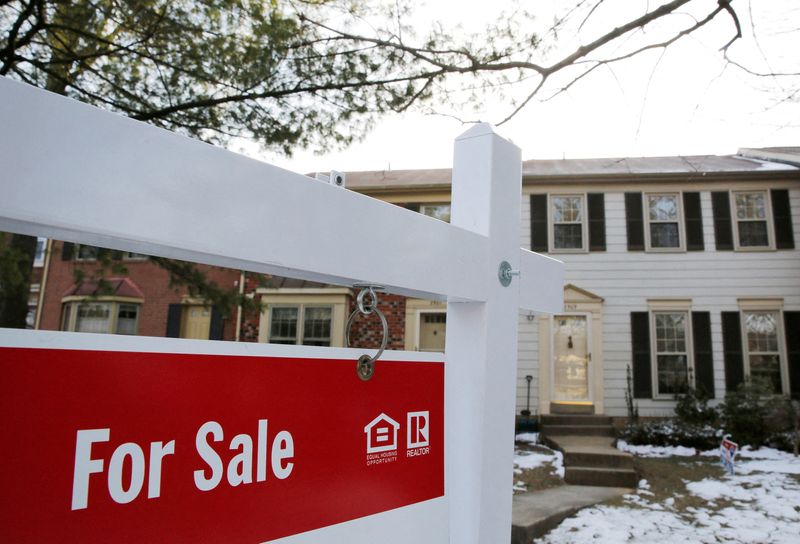By Hari Kishan
BENGALURU (Reuters) - A retreat in U.S. house prices will extend into next year, although the expected 12% peak-to-trough drop predicted by analysts polled by Reuters would be just about one-third as severe as the last market correction 15 years ago.
Such a modest fall after a 40% rise in average house prices over the last two years based in part on a surge in demand for more space during the COVID-19 pandemic will not be enough to make housing affordable, analysts said.
House prices have doubled in the last decade but a doubling in mortgage rates since the start of this year from 3.3% to around 6.5% has brought the historic boom to a screeching halt.
Average U.S. house prices as measured by the Case Shiller 20-City index are forecast to rise 13.6% this year and fall over 5.6% in 2023, the Nov. 8 - Dec. 2 poll of 25 housing strategists showed. If realized, it would be the first full-year decline in house prices in a decade.
Average U.S. house prices peaked in June on this measure and are already down about 4% since then. They are expected to drop 12% in total, according to the median forecast, with estimates ranging as high as 30%.
"The expensive prices of homes coupled with high mortgage rates have made housing unaffordable for many Americans," said Crystal Sunbury, senior real estate analyst at RSM, a consulting firm.
"Market corrections are expected to continue into 2023, as housing gives back some of the steep gains that occurred over the pandemic."
Sunbury expects an average 5% decline next year, roughly the same as the consensus view.
But house prices need to fall close to 20% peak to trough in order to make them affordable, according to the median reply to an additional question, with forecasts as high as 40%, roughly the correction in the run-up to the 2007-08 financial crisis.
A strong job market and tight supply was expected to prevent a crash. A majority of respondents, 14 of 24, say the chances of that happening were low or very low. Among the remaining 10, nine said high and one said very high.
Existing home sales, which have dipped for nine months in a row to a 4.4 million annualized pace in October from nearly 6.5 million at the start of the year, were expected to average around these current levels until Q3 of next year.
Single-family homebuilding and permits for future construction too have dropped to the lowest levels since June 2020.
"Home prices in 2023 will be somewhat protected by inventory constraints," said Matthew Gardner at Windermere Real Estate.
"Many would-be home sellers will be reluctant to lose the historically low interest rate that they currently benefit from, and this will limit the national correction."

Since most Americans take out fixed 30-year mortgages, the impact of higher interest rates are not felt immediately by home owners, thereby reducing foreclosure risks and an outright crash.
(For other stories from the Reuters quarterly housing market polls:)